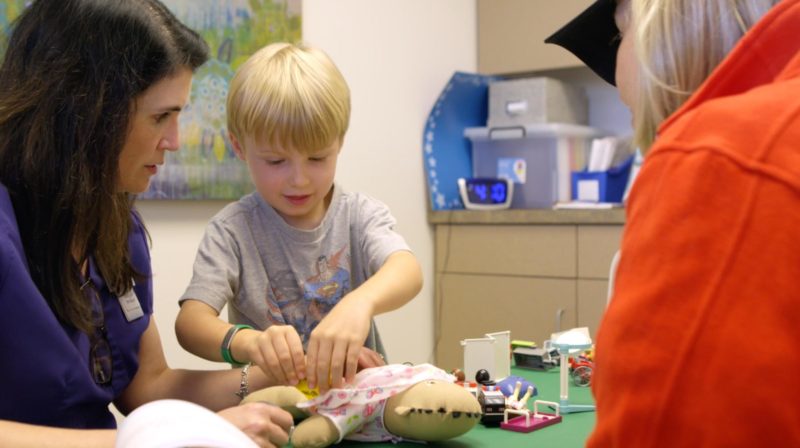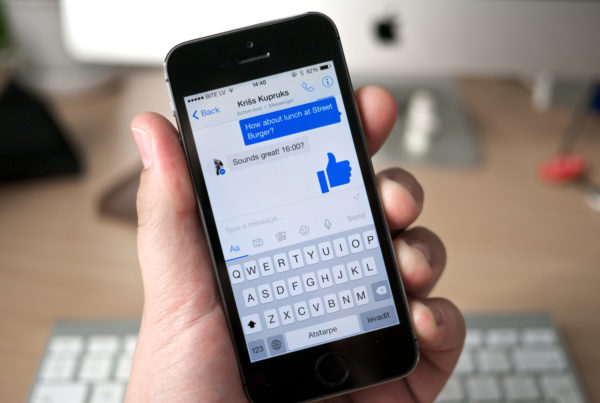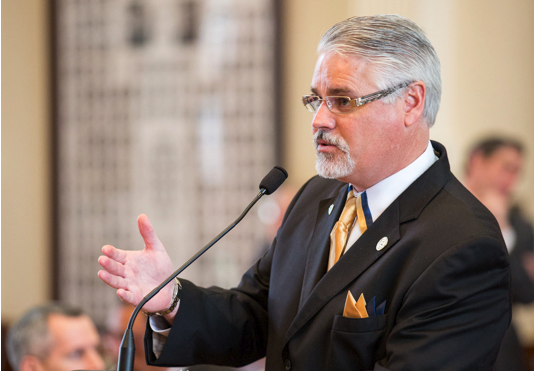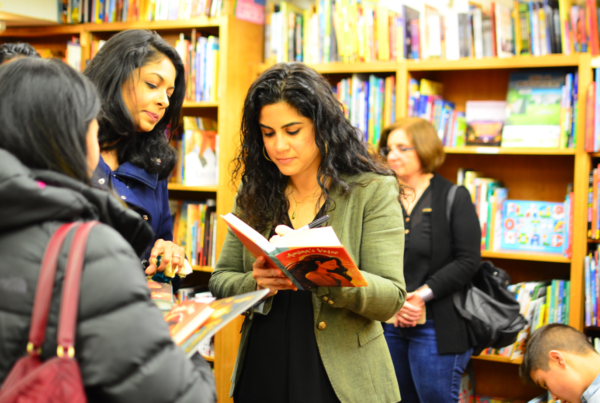From KERA.
Baylor Scott & White Health has created a program that helps terminally ill parents talk to their young children about disease, treatment and death. A Dallas mother turned to Baylor specialists for help telling her son she had breast cancer.
Making promises
Carolyn Brown and her son, Jack, have an important ritual.
“He’s kind of a mother’s boy. Wherever we would go, whether I’d take him to preschool or swim lessons, we’d do a pinky promise. ‘Does Mommy always come back?’ It’s the thing we do that makes him feel safe.”
But after she was diagnosed in July with Stage 3 triple-negative breast cancer, which is extremely aggressive, she knew this would take more than a pinky promise.
“If he asked me if everything was going to be OK, I actually couldn’t promise him that. Because I kept thinking: What do I say if he asks ‘Mommy, are you going to die?””
That’s when Brown and her husband, Steve, turned to Baylor’s “child life specialists” — people trained to help kids understand and cope with a loved one’s illness. They helped the Browns realize tiptoeing around the cancer wasn’t going to work for Jack.
“Jack is very thoughtful and takes everything in, and I was very afraid that there would be some long term effect or problem. Would he suffer from anxiety in school? And I just thought this is a big blow to a little 5-year-old kid.”
Understanding and talking about cancer
Today, Jack is 6. He bounds around the house like 6-year-old boys do. Brown asks him if he wants to get his “mommy doll.” The mommy doll is an exercise from the child life program — something to help him visualize his mom in the hospital.
“She had these little drains stuck into her body so whenever she digests food, it wouldn’t go where the cancer was,” Jack explains. “It would go into that tube and go out into the drain.”
He’s not quite ready for medical school, but he’s on a roll.
“And one of the things, which is not really appropriate, she had a bag under her bed, and it was for when she didn’t have to get up and go to the bathroom, she just went P-E-E in her pants.”
Mom says, “Remember what it was called? The catheter?”
He may only be 6, but there’s no doubt Jack has a distinct ability to talk about cancer. And that’s thanks to Cinda McDonald, his child life specialist.
McDonald works with kids, from 3 to 18 years old. Her team has developed techniques to help kids of all ages cope with difficult news, hospital visits and dramatic life changes — through play, books and arts and crafts. That mommy doll helped Jack prepare himself for his mom’s physical changes. So did what they called a “head-shaving” party.
“That includes the kids in this process so they get to see the actual process and progress of cancer to chemotherapy, radiation, surgery as we go along,” McDonald says. “Don’t just hide and let your hair fall out in the bathroom one morning.”















